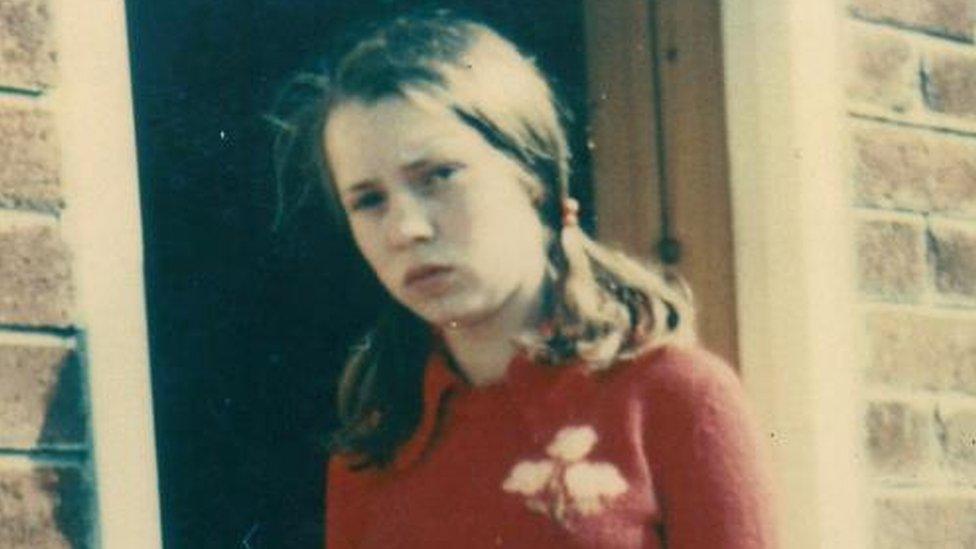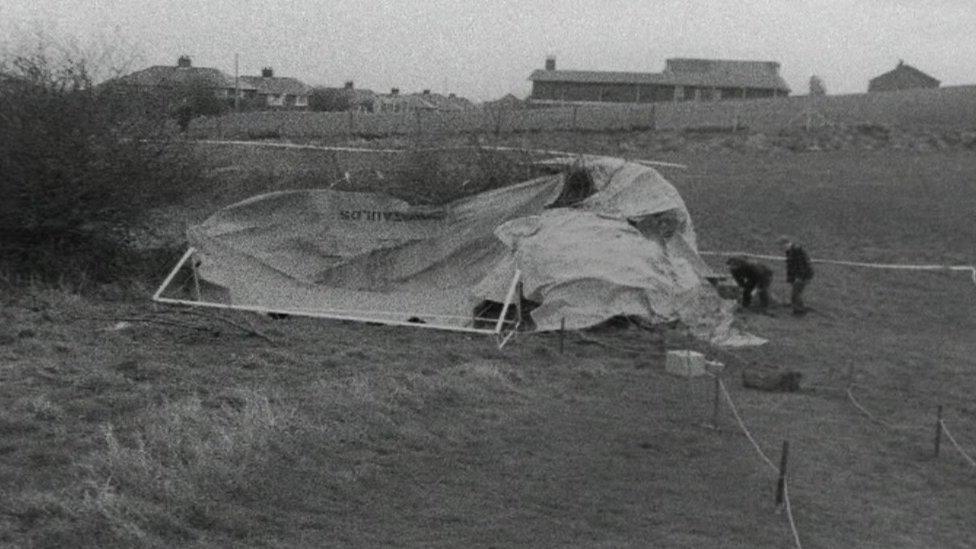Janet Commins: Noel Jones cleared of schoolgirl's 1976 killing
- Published

Noel Jones said he was made a scapegoat by police
A man who went to prison for six years for the killing of a Flintshire schoolgirl in the 1970s has won an appeal against his conviction.
Noel Jones, 61, had been accused of murdering Janet Commins, 15, but was convicted of manslaughter and jailed for 12 years, half of which he served.
Mr Jones lodged an appeal after DNA testing helped convict Stephen Hough of Janet's manslaughter.
The Court of Appeal ruled he had been the victim of a "serious injustice".

Janet Commins left her house to go swimming with a friend and her parents Eileen and Ted never saw her alive again
Lord Justice Leveson said Mr Jones would be "wholly exonerated from involvement in this terrible case", sparked by Janet's death in January 1976.
Mr Jones, aged 18 at the time, admitted killing Janet but did not challenge his conviction until Hough went on trial.

Janet's body was found hidden under bushes near Gwynedd Primary School
This, he told the court, was because he was a barely literate Gypsy who had been made a scapegoat by the police.
But the court had earlier heard police denied having placed pressure on Mr Jones to confess to Janet's killing. They said he had been "interviewed appropriately under the regime then in force".
Janet went missing after leaving her home to go swimming on 7 January 1976.
Her body was found under a thicket near a school playing field, four days later. She had been suffocated during a sexual assault.
Hough was was finally convicted in 2017 and sentenced to 12 years for the teenager's killing and a further three after admitting he had sexually assaulted her before her death.
He had been arrested in 2016 in connection with an unrelated case, before DNA samples taken from him were matched to those taken from Janet's body.

The judge said Hough killed Janet "in the course of a violent sexual assault"
In a statement read out by his barrister Simon Killeen, Mr Jones said he had endured a "difficult and dangerous" time behind bars as a convicted child rapist and killer.
"Confirmation for everyone to hear that my conviction for these horrible crimes is no more, together with the knowledge that the person who did end Janet's life is in prison, is a great comfort," he said.
After serving his sentence, he had been "ostracised completely" by his community and moved to another part of the country after changing his name, Mr Killeen had told the court.
He had since "rebuilt his life" and had a family, but was now in "chronic ill health", he added.
Mr Jones added he was "touched" that Janet's family had expressed concern for him.
- Published17 July 2017

- Published13 July 2017
